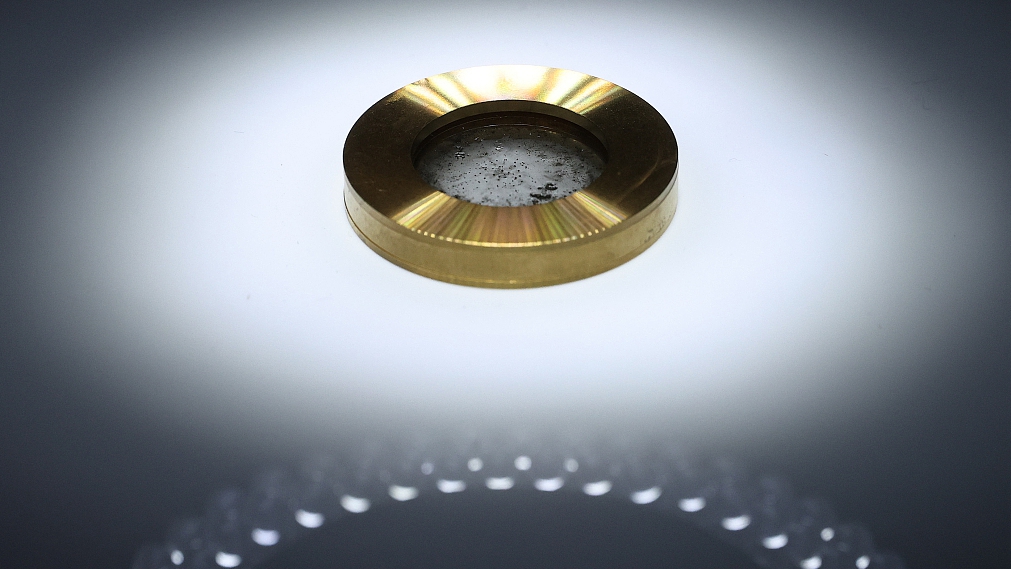
Lunar samples returned by the Chang'e-5 mission is exhibited in Nanjing, east China's Jiangsu Province, April 23, 2021. /CFP
Lunar samples returned by the Chang'e-5 mission is exhibited in Nanjing, east China's Jiangsu Province, April 23, 2021. /CFP
China has presented Russia and France with lunar samples, China National Space Administration (CNSA) revealed at a launching ceremony for this year's Space Day of China on Monday.
During French President Emmanuel Macron's visit to China this April, China presented France with 1.5 grams of lunar samples for scientific research. For the same purpose, on February 4, 2022, China presented Russia with 1.5 grams of lunar samples when Russian President Vladimir Putin visited China, and Russia reciprocated China with 1.5 grams of lunar samples during Chinese President Xi Jinping's visit to Russia in March 2023.
The lunar samples China delivered to France and Russia originate from the drilled samples and surface samples returned by its Chang'e-5 mission in December 2020 from the Statio Tianchuan in the northeastern Oceanus Procellarum on the near side of the moon. The lunar samples Russia gave to China originate from the drilled samples by the former Soviet Union's Luna 16 mission in 1970.
A regulation on the management of lunar samples was released by CNSA in December 2020 to encourage international research and sharing of scientific achievements on lunar samples. Scientists from Australia, Russia, France, the United States, the United Kingdom and Sweden have participated in scientific research on Chinese lunar samples.
The international sharing and joint research on lunar samples is a major event in the scientific community worldwide, an important approach to study the formation and evolution of the moon, as well as a key scientific activity for human society to explore the unknowns, said CNSA.
Under the principles of peaceful utilization, equality and mutual benefit, China conducts space exchanges and cooperation with other countries to jointly build a community of shared future for mankind in the outer space, CNSA added.